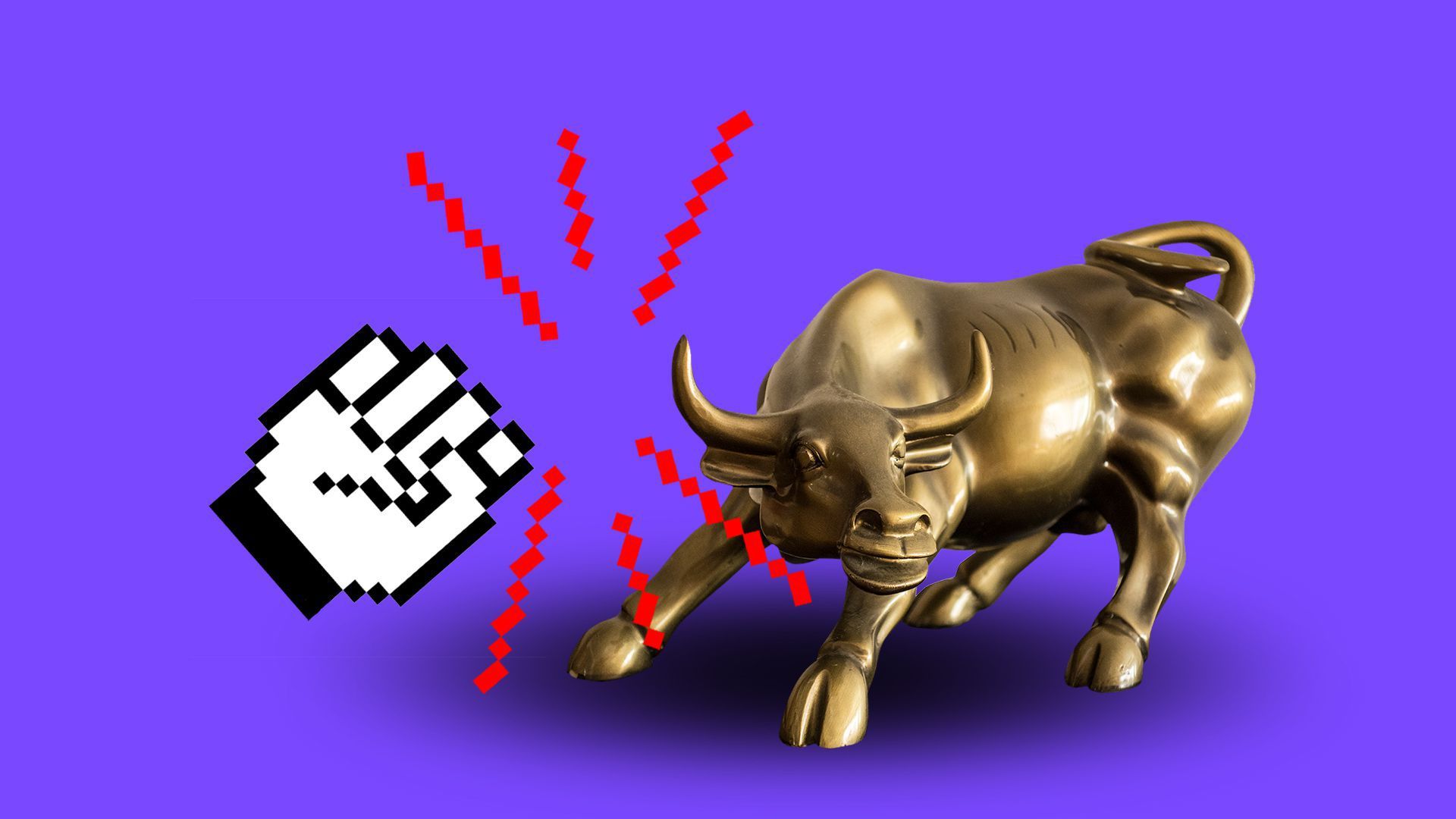The new guinea pig in the Silicon Valley culture war
Add Axios as your preferred source to
see more of our stories on Google.

Illustration: Annelise Capossela/Axios
Coinbase this week offered severance packages to employees who don't feel aligned with the company’s apolitical culture and mission, which CEO Brian Armstrong clarified Sunday in a blog post.
Why it matters: The crypto company, most recently valued by investors at over $8 billion, is setting itself up as a guinea pig in a culture battle that's more about stereotypical Silicon Valley vs. stereotypical Wall Street than it is about progressives vs. libertarians.
Behind the scenes: Armstrong's blog post came three months after he wouldn't immediately commit to publicly endorse Black Lives Matter, when asked during an internal Q&A session, which prompted a partial employee walkout.
- Axios' Kia Kokalitcheva has reported out the full timeline and context.
Armstrong is not a typical Silicon Valley CEO. He went to Rice, not Stanford. He did a short stint in the consulting world, and hired Coinbase's chief people officer out of Citadel. His CFO previously reported to Steve Mnuchin at OneWest Bank.
- Sources tell me that Armstrong has long been uncomfortable with parts of Silicon Valley office culture, but went along to get along. Now, however, he's changed course, and published the blog post as much to recruit like-minded employees as to weed out internal dissenters.
- It remains unclear exactly how this shift will manifest itself in company policy, although there is an all-hands scheduled for today that may clarify.
The reality: Silicon Valley tech companies have largely adopted the mantra that employees are family, in part to help justify long hours. And families are expected to discuss and argue over a wide range of topics — usually with mutual respect and support built-in. Armstrong, instead, wants to create a bright-line between employee and family.
The counter: Some critics of Armstrong's post insist that because the personal is often political, it's impossible for certain employees to divorce the two.
- But this is, in itself, could be considered a form of tech privilege — imagine a supermarket cashier making that argument, to justify talking politics with customers.
- Moreover, many tech companies have been castigated for upselling their humanitarian motive and downplaying their profit motive. In this case, Armstrong is saying Coinbase is a business. Full stop.
- Many of those who criticized Mitt Romney for saying "corporations are people," are now arguably making that case themselves, albeit in a different context.
To be clear, I'm not endorsing Armstrong's vision.
- I wouldn't want to work at Coinbase under these conditions, and it appears many of his actual employees feel the same way. I also believe in the value of corporate citizenship, from sponsoring Little League teams to engaging in broader social issues — as no organization is an island unto itself.
The ultimate question is if there's only one way to successfully run a Silicon Valley tech company, when it comes to such issues. Coinbase is about to provide us with an answer.
